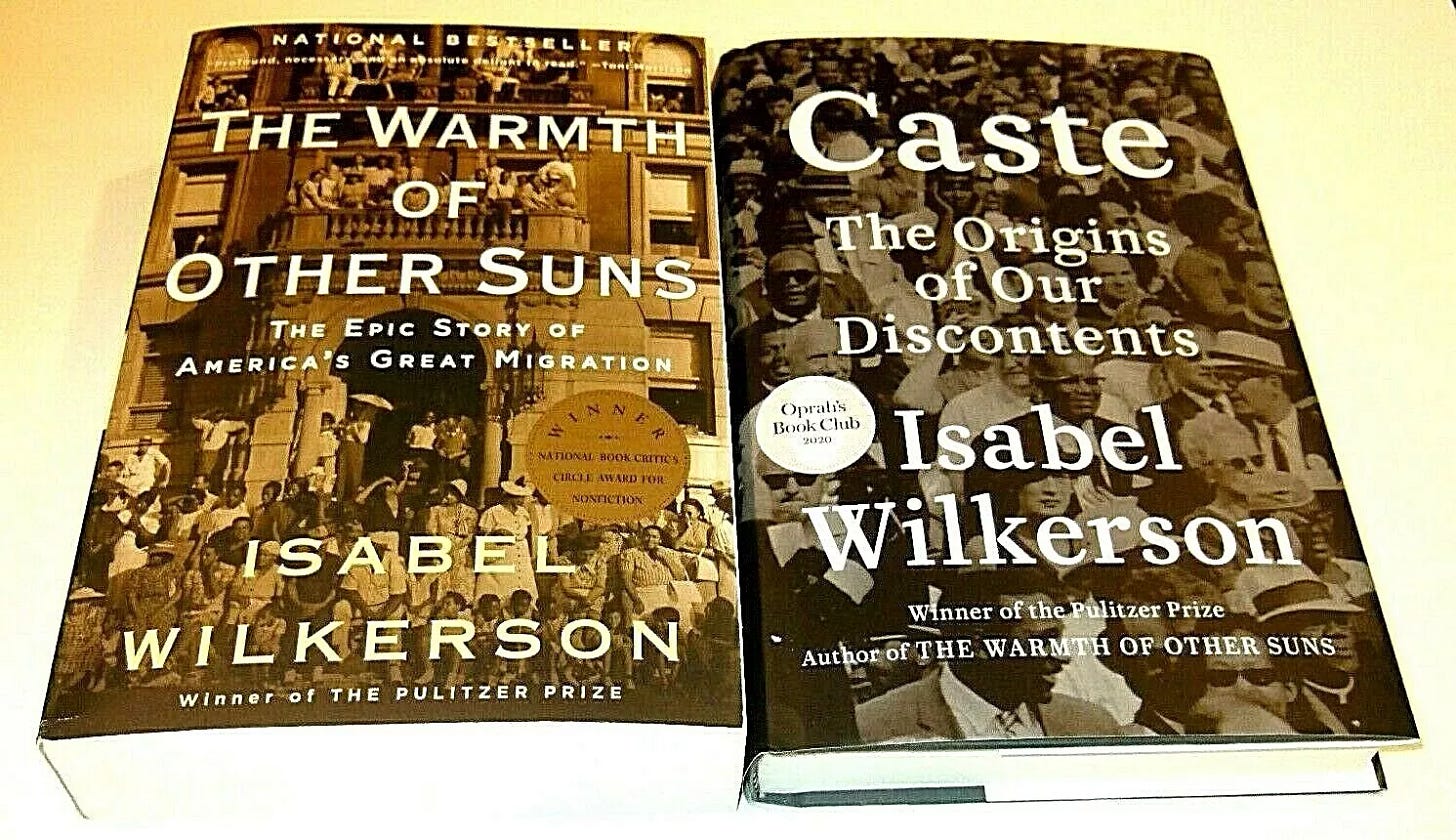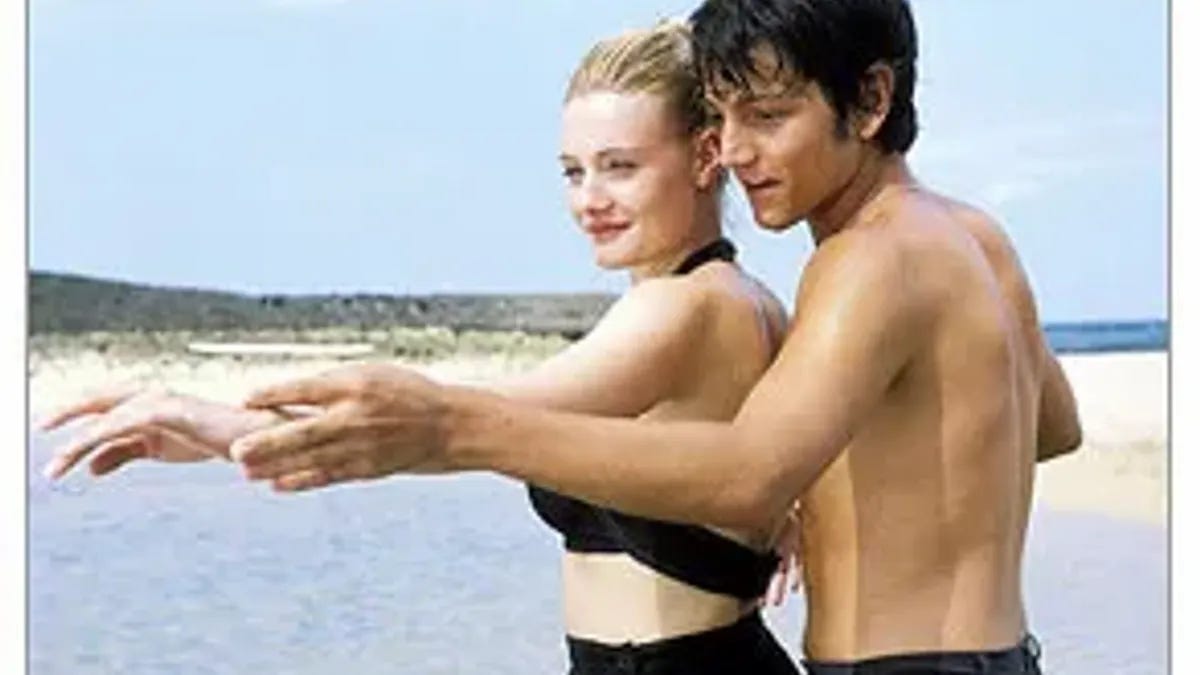The absurdity is getting the best of me.
But I mean that in the way the literal words mean,
not in the slightly dated colloquialism.
The best parts of me
are leaning into the absurdity
of this moment in space time.
Several things are happening at once.
I’m living in Guatemala on temporary assignment
teaching in an environment I’ll tell more about once I’ve gained some distance.
I am moving back to the states in June. I will have lived here just under two years.
Time is so fake; but that’s another post. All my quantum leapers, where you at?
I am reading The Warmth of Other Suns. The line of Wilkerson’s that I’ve been using as inspiration since 2015 is at the beginning of chapter two. I read it a second time and I had to put the book down.
I think I needed to write this before I can go back to that.
Thank the social media gods for putting the intersection of Brownness and Blackness on my feed, along with the idea of intentional attention as liberatory practice.
I’m thinking about Haiti
and the time I had to tell this guy I know
that Haitians aren’t cannibals1.
My Spanish language learning has stalled some. I want to take my first trip to the Caribbean. There’s only one place in Guatemala where there are a collection of Black-presenting people and it’s Livingston. I want to go in a couple of days, but I’m nervous about transit.
I am mourning all the trips I didn’t take to Panama. And the fact that in Panama, I didn’t visit the Caribbean side.
While reading the book,
I noticed that Wilkerson pulled her title line
from a poem by Richard Wright.
I didn’t make note of that the first time I listened to chapter one on audio.
I am just convinced enough of my calling as a writer to believe that her use of epigraphs makes it perfect that I shaped my “Black Future” poem around a line of hers.
That poem shaped the middle bit of my career in poetry.
That poem, nine years later, is still my best attempt at explaining who I am and my role in this world.
“In a Latinegra English teacher’s version of the future…”(Do y’all remember when Instagram and tumblr made “Latinegra” a thing?
“Afrolatine/x/o/a” feels better as the word we keep,
but I like “Latinegra” as a linguistic time marker.)
I am writing this from a dirty dining room table in a comically oversized house. Absurd.
I am writing this as part of my journey away from teaching literature in English at secondary schools to teaching it to university students and as part of home school initiatives.
Three weeks ago, I was combing through essays, begging to hear my students’ authentic first-language-Spanish voices react to Gloria Anzaldua, Julia Alvarez, Amy Tan, and John McWhorter. Despite my cleverly arranged linguistic and cultural texts, internet translators and ChatGPT felt like they were criminally assaulting me. Well, assaulting the students. But also me. I wanted to hear them understand that we are our language. (A student wrote that).
I’m listening to D’Angelo’s Voodoo on repeat while I write.
I can’t say what I want to say
about my two years in this city
because this is not my community.
I am moving to Texas instead of back to Oklahoma
because half my community is still mine and the other half is repelled by me.
I want a minimum of five people to tell me this is good before I post it,
but I’ve been studying Human Design (just enough to pretend to know what I’m talking about)
and Manifestors have to follow our inspiration
regardless of the safety of permission. It’s absurd.
I was listening to a podcast
the first time I heard Henry Louis Gates’s voice,
but the cover of Black in Latin America has been photographed in my phone since 2015
when I was a library aide in OKC.
Last summer, I sat with my friend and human mirror (whose name I’ll leave out of this because
I use him too much and I’m trying to reconcile that)
in his living room for several hours. I told him that my era as an OKC hip hop blogger was the first time I felt like people saw me for me.
I was able to bring my analytical English literature degree
into an inherently Black “space” through my words.
He and I discussed the “cultural” poems I was including in my forthcoming poetry collection; poems about Drake and Prince and church and that era of underground rap. He confirmed that I have always been compensating for a Blackness that has never been anyone else’s to deny.
I realized that even if the two-concerts-a-weekend era is over forever,
the writing and processing,
critiquing and legitimizing of our art is still at my fingertips.
I watched What Happened, Miss Simone? and wrote about La Niña.
A situation I will discuss once-I-leave occurred here in Guatemala.
I watched Dirty Dancing: Havana Nights with a stupid grin on my face,
heard Mya and a woman two shades darker than her
both sing reprises of “Represent, Cuba.”
I wondered if the revolution was on the dance floor (watch the movie again),
remembered standing onstage behind Mya at OKC’s Juneteenth festival,
and noticed that the babies dancing in the cinematic Cuban streets
looked like Antonio from Encanto.
Diego Luna told me that “AfroCuban dance is the dance of slaves”
while he taught Romola Garai to move her hips in a circle not a box. Absurd.
I want to write a bridge strong enough
to carry Black people back and forth
between our US PTSD and our Caribbean and African PTSD,
between our water dance freedom and our mermaid ancestors.
I want to drive the Greenbook myself,
connecting the dots between Greenwood and Dungee
and their counterpoints in every state or county.
Not enough people have read my master’s thesis.
And I keep trying not to cringe at the word master.
But Toure was right and wrong about post-Blackness.
And McWhorter is right and wrong about wokeness.
And Lourde and hooks are almost right about everything.
And whether it’s Selvon’s British Caribbean
or every scholar in 1990 trying to understand Gilroy’s Black Atlantic…
whether we demand to be represented
in every medium and boardroom and library,
or whether we conjure for our kin a safe space in the speculative and fantastic…
I sang a song about this absurd place and I wrote a poem about a celebrity obsession.
And in the Black present, 2
I am learning to embody that dangerously absurd place,
where words are our tools and our friends,
where our elders think our anarchy is the downfall of the race,
where y’all close y’all ears to the knowledge they have
of the path
and the Crossroads.
This present Blackness is a bridge
between Blackfishing and lostness,
across an ocean and across one island.
My card isn’t a spade.
And my roots ain’t afraid of blindness
to this rich skin
housing a spirit that knows
that boy be a poem
and none of us will ever clearly see
anything like our history
if we keep hiding pieces behind the veil of perceived authenticity.
The truth is not eclipsed
by the imperfections of each of us who speak it.
Every bloodline purposely united
behind this exact skin
to experience a few earth revolutions
however folx perceive it.
I been searchin’ for safety
but my soul made its home
in the absurd,
the dangerous,
the inexplicable, unpronounceable word.
Who else speakin’ my language?
I be ducked off, not lost, in translation.
News story got over played and taken out of context. Whether or not there’s a group of people who happen to live in Haiti who have eaten people will never justify implying the Haitians as a group are cannibalists.
The refrain of my other poem starts with “In the Black future.” If you listen to hip hop, you should listen to me read the poem and all the songs my friend wrote on the topic.







